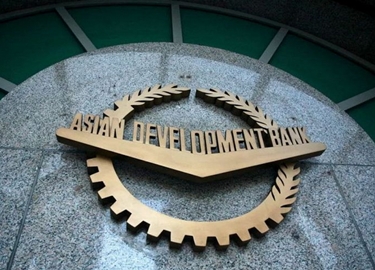
The Asian Development Bank (ADB) is preparing a new country partnership strategy (CPS) for Turkmenistan that will prioritize private sector development; developing human capital, with a focus on women and girls; and climate change, ADB Vice-President Shixin Chen said in meetings with senior officials from the Central Asian nation this week.
Tackling climate change is a top priority for ADB. Mr. Chen confirmed the bank is ready to help the government address the country’s methane emissions, increase energy efficiency and renewable energy generation, and develop a long-term climate change strategy.
“ADB values its long-standing partnership with Turkmenistan,” said Mr. Chen. “Our new CPS will expand our support into new areas and double-down on our existing work to help the government continue diversifying the economy and reposition the country as a trade and transit hub. ADB is committed to helping Turkmenistan develop an economy that is more sustainable, resilient, and competitive—for the benefit of the Turkmen people.”
During his 5-day visit, Mr. Chen met with ADB Governor and Chairman of the Central Bank of Turkmenistan Toyly Malikov, Vice Premiers Baymyrat Annamammedov and Hojamyrat Geldimyradov, and Director General of the Transport and Communications Agency under the Cabinet of Ministers of Turkmenistan Mammetkhan Chakyyev, among other officials.
Under the new CPS for 2024–2028, ADB plans to extend its support to include small and medium-sized enterprises and start-ups, public–private partnerships, digital technology, exploration of Turkmenistan’s potential to tap solar energy, and the water management sector. The new CPS will build on the bank’s existing areas of engagement, notably regional connectivity and improving economic diversification.
Since Turkmenistan joined ADB in 2000, the bank has committed about $635 million to improve the country’s energy and transport infrastructure. The ADB-financed North–South Railway Project has helped to increase trade with other countries in the region. The ongoing National Power Grid Strengthening Project will improve the reliability and efficiency of Turkmenistan’s transmission grid and support the nation’s electricity exports.
This grid strengthening project is one of two visited by Mr. Chen this week. He also travelled by rail from Ashgabat to Dushak, a town in the Karakum Desert, where he met with railway officials and inspected that station’s control room. ADB is considering a project to modernize railways in Turkmenistan, including the 170-kilometer Ashgabat–Dushak stretch of the country’s main railway corridor, which will increase the top speed of passenger and freight trains.
Turkmenistan is a member of the Central Asia Regional Economic Cooperation (CAREC) Program, a partnership of countries and development partners working together for sustainable development through regional cooperation. Through CAREC, ADB is supporting Turkmenistan’s accession to the World Trade Organization which last year granted the nation acceding country status.
ADB is also helping to strengthen the government’s institutional capacity to form and implement evidence-based policy. The bank has arranged training for officials from the Ministry of Finance and Economy on macroeconomic policy analysis.
ADB is committed to achieving a prosperous, inclusive, resilient, and sustainable Asia and the Pacific, while sustaining its efforts to eradicate extreme poverty. Established in 1966, it is owned by 68 members—49 from the region. ///ADB, 16 June 2023
#Turkmenistan, #ADB, #economy_of _Turkmenistan, #private_sector, #transport, #energy